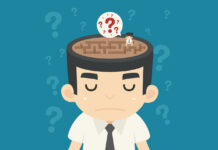Could a Different Approach to “Mental Health” Be Part of Solving the Climate Crisis?
Earth Day 2013 is a good time to reflect on how problems in our mental health system reflect deep flaws in “normal” conceptions of what it means to be a human being. These flawed conceptions then contribute in a critical way to the climate crisis that threatens us all.
The Psychiatry Sandcastle Continues to Crumble
Psychiatry would long since have gone the way of phrenology and mesmerism but for the financial support it receives from the pharmaceutical industry. But the truth has a way of trickling out. Here are five recent stories that buck the psychiatry-friendly stance that has characterized the mainstream media for at least the past 50 years.
The Emperor’s New Clothes? The Psychiatrist as Expert in a Post-Modern World
Psychiatry has fallen to too many fads and abusive treatments over the decades to hold current treatments with any confidence.
An Illness, or Risky Experimentation?
Questioning is what I did, but once I started questioning so much of what I had learned and of what my identity had been, it wasn’t obvious to me where I should stop.
Doctor Munchausen, I Presume!
In 2000 when I gave a lecture on "Psychopharmacology and the Government of the Self" at the invitation of the University of Toronto, I ran into a problem. In the public domain our shared difficulties were because of this lecture. In fact, the difficulties stemmed from a member of the Establishment – Charlie Nemeroff – who put the frighteners on the U of T about hiring Healy. 'The psychopharmacology establishment in the face of adverse effects from drugs' is the same as 'the medical establishment in the face of treatment-related adverse effects' is the same as 'the British establishment in the face of allegations of paedophilia and child abuse' is the same as 'the Vatican in the face of allegations of abuse.' It’s about power. We have it – you don’t. Get lost.
Chapter Twenty-Six: Reaching the End, and Making a Start
A deep blue blanketing of 1AM sky envelops my car as I sit in my parents’ driveway in February 2010, pondering my next, last...
How Reliable is the DSM-5?
More than a year on from the release of DSM-5, a Medscape survey found that just under half of clinicians had switched to using the new manual. Most non-users cited practical reasons, typically explaining that the health care system where they work has not yet changed over to the DSM-5. Many, however, said that they had concerns about the reliability of the DSM, which at least partially accounted for their non-use. Throughout the controversies that surrounded the development and launch of the DSM-5 reliability has been a contested issue: the APA has insisted that the DSM-5 is very reliable, others have expressed doubts. Here I reconsider the issues: What is reliability? Does it matter? What did the DSM-5 field trials show?
Listen to the Victims: Senate Holds Hearing on Guardianship
I have seen the exploitation wreaked by court-appointed guardians. It is up to us to use our voices for those who cannot speak out.
Neutralising Suffering: How the Medicalisation of Distress Obliterates Meaning and Creates Profit
People have used psychoactive substances to dull and deaden pain, misery and suffering since time immemorial, but only recently, in the last few decades, have people been persuaded that what they are doing in this situation is rightly thought of as taking a remedy for an underlying disease. The spread of the use of prescription drugs has gone hand in hand with the increasing medicalization of everyday life, and a corresponding loss of the previous relationship that people had with psychoactive substances.
Dialogue Is Just What the Doctor Ordered: Town Halls in a Time of Crisis
The next Town Hall in this Dialogical Series, which is being jointly convened by MIA, HOPEnDialogue, and Open Excellence, will be held on May 15th at noon Eastern U.S. time. It will feature a discussion between Russell Razzaque of London, Regina Bisikiewicz of Poland, Corinne Hendy of Nottingham, Rob Cotes of Atlanta, and Martijn Kole of Utrecht that begins with their experiences of fostering a dialogical perspective in systems of “mental health” care.
The “I Am Not The Butcher” Speech
On Thursday I had an interaction with a psychologist where I basically said, "I am not sure I want to attend a workshop you...
“Life Unworthy of Life”: Historical Amnesia, Ausmerzen and the Rhetoric Surrounding Autism
The idea that human value can be reduced to economic contribution is not merely reductive—it is deeply dangerous.
Gender and Psychiatry: Pathologized Emotions
Our emotions in response to violence, lack of recognition, moral or sexual attack are defined as "mental illness" by psychiatry.
Psychiatrist Says: More Psychiatry Means More Shootings
Psychiatry not only increases the risk of violence by giving violence-inducing drugs, it lulls patients, families, professionals, schools and the public into an unrealistic and even disastrous sense of security. It's an irony of tragic proportions: Cruz was left unsupervised and free to buy a gun because he was faithfully taking psychiatric drugs that can cause violence.
10 Reasons Survivors Might Know More Medicine Than Psychiatrists
We've been discussing a potential role for psychiatrists on this site, and I wanted some of the doctors to understand why many mental health...
The Lie That Antidepressants Protect Against Suicide Is Deadly
Antidepressants do not protect against suicide. According to placebo-controlled trials, they double the risk of suicide.
Still Seeking a Chemical Cure After All These Years: Lauren Slater’s Blue Dreams
Blue Dreams offers a history of the development of psychiatric drugs, but is partly a memoir of the demise of the author's health during the decades she spent on psychiatric drugs. At the time of writing her memoir, Slater is not yet at the point of realizing that the mental health system is not a productive place to go for answers to depression.
Life Events Cause Psychosis: The Further Adventures of an Aspiring Psychonaut
I just wanted to do a brief followup on my last blog post about my latest psychotic break adventure. I am a recent Psychonaut exploring the inner workings of the mind, and finding out what was my reality versus Consensus reality. I am starting to come out of the experience. It is like waking from a dream. Questioning one's self is a standard part of this process of coming back to consensus reality — at least for me. It's good to reconsider some of the conclusions I've come to in the last month or so, when some of my inputs may have not been a part of consensus reality. But I'm getting stronger.
Me, My Brain, and Baked Beans
I’ve spent much of my professional life studying psychological aspects of mental health problems. Inevitably, this has also meant discussing the role of biology. That’s my academic day-job. But it’s not just academic for me. I’m probably not untypical of most people reading this; I can see clear examples of how my experiences may have affected my own mental health, but I can also see reasons to suspect biological, heritable, traits. As in all aspects of human behaviour, both nature and nurture are involved and they have been intimately entwined in a complex interactive dance throughout my childhood and adult life.
Immune Response is Secondary to Trauma
Mad in America has featured an article about inflammation and the immune response in the Lancet. It’s great that these things are being studied, but as usual it’s done from a dangerously reductionistic perspective. We must broaden our lenses if we hope to profoundly help people. Again, my favorite meme: everything matters.
You Have the Legal Right to Informed Consent
My doctor didn’t tell me about any side effects, and I didn’t ask. I assumed that if there were any risks with taking Paxil, he would tell me.
The Quiet Crisis in Mental Health: The Medicalization and Deskilling of Psychotherapy
The focus on the "worried well" and the exclusion of the "mad" serves to legitimize psychiatric control and surveillance.
How Psychiatry Almost Stopped Burning Man: A Story of Hell and Liberation
As Burning Man nears its 30th anniversary, USA Today has published an article attempting to explain how this still somewhat freakish event came into existence. I enjoyed the article, but as someone involved in the origin story it tells, I believe that an important piece is being left out. This relates to how misguided “mental health treatment” came close to disabling a key organizer of the early Burning Man. This piece is a fascinating tale in itself, but more fascinating when considered as just one example of how a flawed approach to mental health treatment forms a barrier to many forms of cultural evolution and renewal, with oppressive consequences for society as a whole.
Suicidal Tendencies, Part I: I’m Suicidal Because I’m Mentally Ill Because I’m Suicidal
I can’t even begin to count the number of times I’ve heard “Research has found that about 90% of individuals who die by suicide experience mental illness.” Here’s what I believe it means in far too many instances: It’s an 'out.' It’s an easy answer that absolves us all of blame. If someone has a ‘sickness in the brain,’ then it doesn’t have to be our fault or even necessarily our concern.
Peer Support in Mental Health: Exploitive, Transformative, or Both?
The first time I tried to write about peer support—that emerging form of “service delivery” in which one person in recovery from what is described in the field as a “serious mental illness” offers support to another person who is in distress or struggling with a mental health condition—was in 1994. The manuscript was summarily rejected from an academic journal as representing what one of the reviewers described as “unsubstantiated rot.” That same article was eventually published 5 years later, and used by the President’s New Freedom Commission on Mental Health to support its recommendation that peer supports be implemented across the country. Now, more than a decade later and as peer support arrives at something of a crossroads, both of these reactions remain instructive.





















